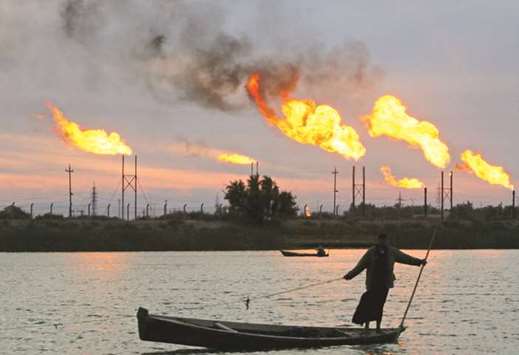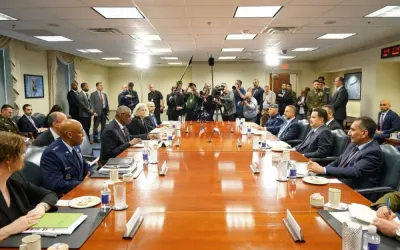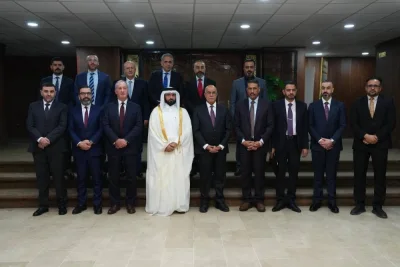Iraq plans to build a pipeline network to carry oil products across all its territory as an alternative to expensive and hazardous transport by tanker truck, Oil Minister Jabar al-Luaibi said yesterday.
The network is part of a “strategic” plan for oil transportation that includes pipelines to deliver crude and oil products to neighbouring countries, he said.
The only crude pipeline now in operation in Iraq links the northern, semi-autonomous Kurdish region to Turkey’s Mediterranean coast.
All other crude pipelines were shut down or destroyed in the past 35 years as a result of wars and conflicts.
Iraq, Opec’s second-largest producer after Saudi Arabia, once had an extensive network of pipelines to export its crude.
One of them carried Iraqi oil across Syria to Lebanon’s Mediterranean coast, another to Turkey’s Mediterranean coast, largely bypassing the Kurdish region, and one to the Red Sea across Saudi Arabia.
Iraq earlier this month announced plans to build a crude pipeline to fellow Opec member Iran.
Iraq has begun reconstruction work at what was the country’s biggest oil refinery before it was damaged by intense fighting between government forces and Islamic State group militants, the oil ministry said on Thursday.
The aim is to complete work early next year on one of the units that will produce 70,000 bpd at the Baiji complex which is currently shut, said ministry spokesman Assem Jihad.
Constructed in 1975 and located 200km (125 miles) north of Baghdad, the refinery produced between 250,000 bpd and 300,000 bpd before IS seized it in June 2014.
Government forces retook the facility and the city of Baiji in October 2015 during fierce clashes with the IS militants but the severe damage meant that the refinery remained closed.
“The rehabilitation will allow the distribution of refined products for the north of the country and reduce our imports,” said Jihad. Baiji was particularly hard hit by the devastation wreaked by Iraq’s campaign to reclaim its towns and cities from IS.
In 2016 it was declared a disaster zone by the national parliament.
Backed by a US-led coalition, Iraqi forces gradually retook control of all territory lost to IS over the past three years and Prime Minister Haider al-Abadi has declared victory against the militants.
But experts warn that IS remains a threat.

Flames emerge from flare stacks at the oil fields in Basra, Iraq (file). Iraq earlier this month announced plans to build a crude pipeline to fellow Opec member Iran.


